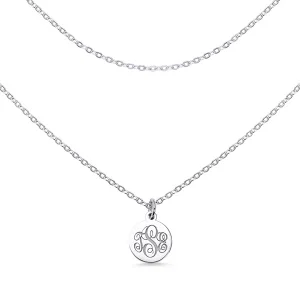Hurting someone you care about can also put you in an uncertain position. Sometimes, all you can do is apologize and hope for forgiveness.
Apologizing to a friend requires sincerity. However, if you feel unsettled afterward, you may end up botching the apology. This is why you need tips that guide and resonate with you so that you can make your apology meaningful.
In this article, we will provide tips on how to write a good apology text and some samples you can use to help you craft yours.
1. Understanding When to Apologize
Most times, we don’t realize that we’re hurting the people we love. It may be because of how we were raised that we take some situations lightly, or insensitivity that makes comments or jokes go south. You should recognize situations that warrant an apology by noticing your friend’s actions afterward. They may go silent or speak out. Some may try to cope with the feelings brought up in their own ways.
Noticing their manner will help you ensure your message is timely and relevant. You don’t want to worsen the situation by apologizing for the wrong thing, showing your lack of scrutiny of the problem.
2. Crafting a Sincere Apology
Guidelines for writing a heartfelt apology that conveys genuine remorse.
- Don’t be the one who becomes angry and resentful too. Let go of any unnecessary ego games and become selfless and empathetic towards your friend.
- Don’t invalidate their feelings. Once they’re hurt, don’t tell them why they shouldn’t be. Just apologize and recognize they’re hurt. Also, don’t bring up something bad they did to you because it counts as invalidation of their feelings.
- Acknowledge that what you did was wrong and that you’re willing to change. Avoid mentioning how their forgiveness will benefit you because it’ll make the apology look selfish.
- Don’t disappear from their lives afterward, just keep a distance. Disappearing may show resentment therefore insincerity on your side.
3. Be Clear and Direct
Now that you know you have to apologize, you don’t have to be around the bush. Be straight to the point by first saying what you did and that it was wrong of you to do that. Avoid excuses…but if you must, make sure that it doesn’t invalidate your friend’s reaction. Also, make sure that it is a good and honest excuse. Maintaining clarity and honesty in your apology will help you avoid misunderstandings during and after your reconciliation.
4. Acknowledge the Hurt Caused
Most people want the person who hurt to admit that they hurt them. Avoid comments like, “If that’s how it made you feel…” Comments framed this way make it look like it’s your friend’s fault that they were hurt, making your apology insincere. It also means you’re gaslighting your friend. Just acknowledge that you hurt your friend, whether knowingly or unknowingly, and take the blame. Explicitly recognizing the impact of your actions on your friend is one of the initial steps to soften them up for your apology.
5. Offer to Make Amends
Now that you’ve apologized, the apology doesn’t end there. There have to be reparations so that you rectify the situation or make up for the hurt caused. This is also part of being sincere. Some ways in which you can do this are:
- Changing your behavior
- Getting therapy if needed
- Making any financial compensation
- Own the rumors and spread a good word about them(in case their name was tarnished)
- Planning friendship dates to fix your bond
- Getting them a make-up gift
- Educating yourself on their opinions
- Being more sensitive towards their feelings and working to understand their likes and dislikes
These are just a few common ways to make amends, but you can get creative and devise more. Your goal should be to make them feel better.
6. Give Them Space to Respond
After doing all that, give them some space. Understanding the need to allow your friend time to process and respond to your apology is important. Even if they may have forgiven you, they still need time to finish processing their healing. In this time, they get rid of any residual anger, hate, and resentment while replacing it with the love you both shared. Your bond may even come out stronger than it used to be.
The consequences of not giving them space may be future resentment from them, awkwardness, or even the need to avenge themselves.
Don’t completely disappear from their lives in this time. Just keep a good and reliable distance.
7. Avoid Over-Texting
Sometimes when people notice that they’ve hurt someone they love, they get emotional and hyper about the situation. It may be that you lack a great outlet for these feelings, so you find yourself sending your friend many text messages. Many messages will make the main apology message foggy, and chances are that your friends might collectively ignore your message. Stick to keeping your message concise to communicate your apology clearly and effectively.
8. Follow Up in Person
Part of showing your care for them is physically interacting with your friend after the apology. It shows more concern for their well-being and also the effort you’re willing to make to ensure they are feeling better.
You should know when and how to follow up your text apology with a face-to-face conversation. Do this after receiving the green light from your friend; don’t force issues, or you’ll disrespect their boundaries. If they accept a meeting, you can plan a meet-up at a common spot or any your friend chooses. From there, you can physically chat about the apology and what happened to hurt your friend.
9. Learning from the Experience
You have to apply what this incident has taught you about handling your friend’s feelings and opinions regarding what you should or shouldn’t do to them. Educate yourself on your friend’s reactions to different situations and better ways to handle them. This can be done through reading a book, learning their reaction patterns, or familiarizing yourself with their emotions. This takes willpower and is a great show of effort towards changing for your friend.
Example Apology Texts
Here, we’ve given some sample texts to guide you in framing your apology. You can twist them to look like something you’d say.
- I’m sorry for making you mad. I didn’t know it would lead to an argument. I’ll be more mindful of your feelings and opinions.
- I hope you find a place in your heart to forgive me, that was so mean of me.
- I can’t ignore that you’re hurt. I’ve realized my mistake and I am truly sorry for that.
- Please don’t believe that I don’t care about you. I was careless but only for one time and I regret it deeply. Please forgive me.
- You know that there’s no such thing as ego when it comes to you. I’m very sorry for my actions.
- I don’t want this argument to cost us our friendship, forgive me for my wrongdoing.
- I thought I was right at the time, but I’m sorry for being unfair to you.
- You’ve always been there for me, I’m really sad that I didn’t show up when you needed me the most.
- I’ve just recalled the agreement we made, “Friends don’t lie.” I’m sorry for hiding this.
- I know I’ve been acting like more of an enemy than a friend. I’m sorry.
- Sorry that I haven’t been your safe space lately. I know I may take time to rebuild that but I’m willing to do what it takes.
- My heart has been heavy for the last couple of days. I’m sorry for not seeing my mistake.
- Hey, I saw your missed call. I’m sorry that I didn’t pick up your call. I was a little busy.
- I’m worried about yesterday night’s talk. I’m sorry for being rude and making you feel demeaned.
- I’m sorry for treating you like that. I acknowledge that I was wrong and you didn’t deserve the heartache and humiliation I caused you.
- I’m sorry for being so cold and harsh to you. Lately, my actions certainly have not lined up with the promises I made to you.
- I’m sorry I made a mistake and I accept the mistake and the consequences that will come
- I understand that my actions hurt you so much, and I’m sincerely sorry.
- I’m very sorry about what I did. I would never intentionally hurt you. You are valuable to me and I don’t want to lose this friendship.
- You know I’d never willingly hurt you. You’re one of the most important people in my life and I wouldn’t want to lose you. I’m so sorry.
Conclusion
An apology has the power to end funds before they even start. It can make life peaceful for both parties and give you peace of mind knowing that you tried to make amends. With the tips we have discussed, you can make your apology meaningful and as sincere as possible. Remember that you shouldn’t keep mentioning how the apology will benefit you; just say that you’re sorry and wish to be forgiven.
With this knowledge, your apology will be properly crafted and delivered.
We wish you all the best in your friendship.



